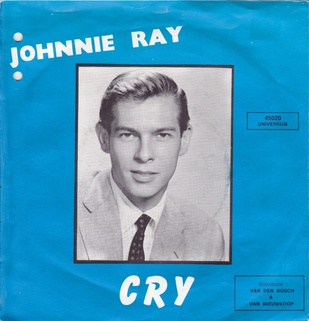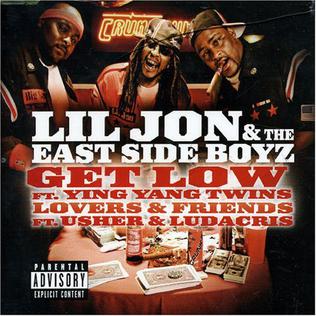Related Research Articles

Tom Petty and the Heartbreakers were an American rock band formed in Gainesville, Florida, in 1976. The band originally comprised lead singer and rhythm guitarist Tom Petty, lead guitarist Mike Campbell, keyboardist Benmont Tench, drummer Stan Lynch and bassist Ron Blair. In 1982, Blair, weary of the touring lifestyle, departed the band. His replacement, Howie Epstein, stayed with the band for the next two decades. In 1991, Scott Thurston joined the band as a multi-instrumentalist—mostly on rhythm guitar and secondary keyboard. In 1994, Steve Ferrone replaced Lynch on drums. Blair returned to the Heartbreakers in 2002, the year before Epstein's death. The band had a long string of hit singles, including "Breakdown", "American Girl", "Refugee" (1979), "The Waiting" (1981), "Learning to Fly" (1991), and "Mary Jane's Last Dance" (1993), among many others, that stretched over several decades of work.

The Marshall Mathers LP is the third studio album by the American rapper Eminem, released on May 23, 2000, by Aftermath Entertainment and Interscope Records. The album was produced mostly by Dr. Dre and Eminem, along with the 45 King, the Bass Brothers, and Mel-Man. Recorded over a two-month period in several studios around Detroit, the album features more introspective lyricism, including Eminem's thoughts on his rise from rags to riches, the criticism of his music, and his estrangement from his family and wife. A transgressive work, it incorporates horrorcore and hardcore hip hop, while also featuring satirical songs. The album includes samples or appearances by Dido, RBX, Sticky Fingaz, Bizarre, Snoop Dogg, Xzibit, Nate Dogg, and D12.

Cornell Iral Haynes Jr., better known by his stage name Nelly, is an American rapper, singer, and actor. He grew up in St. Louis, Missouri, and embarked on his musical career in 1993 as a member of the Midwest hip hop group St. Lunatics. He signed with Universal Records in 1999 as a solo act to release his debut studio album, Country Grammar (2000) in June of the following year. Its namesake lead single and follow-up, "Ride wit Me" both entered the top ten of the Billboard Hot 100, while the album peaked atop the Billboard 200 and received diamond certification by the Recording Industry Association of America (RIAA). His second album, Nellyville (2002) spawned two consecutive Billboard Hot 100 number-one singles, "Hot in Herre" and "Dilemma", along with the top-five single, "Air Force Ones".

Florian Cloud de Bounevialle Armstrong, known professionally as Dido, is an English singer and songwriter. She attained international success with her debut album No Angel (1999). Hit singles from the album include "Here with Me" and "Thank You". It sold over 21 million copies worldwide, and it won her several awards, including two Brit Awards; additionally, she won Best British Album and Best British Female as well as the MTV Europe Music Award for Best New Act. The first verse of "Thank You" is sampled in "Stan", a critically acclaimed collaboration with American rapper Eminem. Her next album, Life for Rent (2003), continued her success with the hit singles "White Flag" and "Life for Rent". In 2004, Dido performed with other British and Irish artists in the Band Aid 20 version of the charity single "Do They Know It's Christmas?".

"Stan" is a song by American rapper Eminem, with vocals sampled from the opening lines of British singer Dido's song "Thank You". It was released in 2000, as the third single from Eminem's third album, The Marshall Mathers LP (2000). "Stan" peaked at number 51 on the Billboard Hot 100. Outside of the United States, "Stan" topped the charts in 12 countries, including the United Kingdom, Germany, Australia, and Ireland.

"Garota de Ipanema", "The Girl from Ipanema", is a Brazilian bossa nova and jazz song. It was a worldwide hit in the mid-1960s and won a Grammy for Record of the Year in 1965. It was written in 1962, with music by Antônio Carlos Jobim and Portuguese lyrics by Vinícius de Moraes. English lyrics were written later by Norman Gimbel.
The Others are an English rock band. They signed to Poptones in July 2004 and their eponymous debut album was released on 31 January 2005.

Andrew Wegman Bird is an American indie rock multi-instrumentalist, singer, and songwriter. Since 1996, he has released 16 studio albums, as well as several live albums and EPs, spanning various genres including swing music, indie rock, and folk music. He is primarily known for his unique style of violin playing, accompanied by loop and effect pedals, whistling, and voice. In the 1990s, he sang and played violin in several jazz ensembles, including Squirrel Nut Zippers and Kevin O'Donnell's Quality Six. He went on to start his own swing ensemble, Andrew Bird's Bowl of Fire, which released three albums between 1998 and 2001. Weather Systems (2003) was his first solo album after Bowl of Fire disbandment, and it marked a departure from jazz music into indie music. Bird's 2019 album My Finest Work Yet was nominated for "Best Folk Album" at the 2020 Grammy Awards.

"Lose Yourself" is a song by American rapper Eminem from the soundtrack to the 2002 motion picture 8 Mile. The song was composed and produced by Eminem, longtime collaborator Jeff Bass, one half of the production duo Bass Brothers, and Luis Resto. The lyrics were written by Eminem. It was released on October 28, 2002, as the lead single from the soundtrack. The song's lyrics explicitly sum up the background of Eminem's character in 8 Mile, B-Rabbit, with the first verse summing up much of the plot of the movie. The song incorporates several aggressive themes, largely dealing with the struggles dealt with by B-Rabbit, and how he eventually overcomes his many problems and obstacles to gain the respect of other rappers.

Seth Bernard Lakeman is an English singer, songwriter and multi-instrumentalist, who is most often associated with the fiddle and tenor guitar, but also plays the viola and banjo. Nominated for the 2005 Mercury Music Prize, Lakeman has belonged to several musical ensembles, including one with his two brothers, fellow folk musicians Sam Lakeman and Sean Lakeman, but has most recently established himself as a solo act.

"Cry" is a 1951 popular song written by Churchill Kohlman. The song was first recorded by Ruth Casey on the Cadillac label. The biggest hit version was recorded in New York City by Johnnie Ray and The Four Lads on October 16, 1951. Singer Ronnie Dove also had a big hit with the song in 1966.
"(Ghost) Riders in the Sky: A Cowboy Legend" is a cowboy-styled country/western song written in 1948 by American songwriter, film and television actor Stan Jones.
"Malagueña" is a song by Cuban composer Ernesto Lecuona. It was originally the sixth movement of Lecuona's Suite Andalucía (1933), to which he added lyrics in Spanish. The song has since become a popular, jazz, marching band, and drum and bugle corps standard and has been provided with lyrics in several languages. In general terms, malagueñas are flamenco dance styles from Málaga, in the southeast of Spain.

Stanley Bowles was an English professional footballer who, as a player in the 1970s and 1980s, was known for his skills as a forward, and also gained a reputation as one of the game's great non-conformists and mavericks. He played over 250 league games for Queens Park Rangers, and earned five England caps.

"Get Low" is a song by American rap group Lil Jon & the East Side Boyz, featuring American hip hop duo Ying Yang Twins, released as a single in 2003. It first appeared on the 2002 album Kings of Crunk. "Get Low" peaked at number two on the Billboard Hot 100 and number 20 on the Hot Digital Songs chart. It was number five on the top Hot R&B/Hip-Hop songs of 2003. Outside of the United States, "Get Low" peaked within the top ten of the charts in the United Kingdom, the top twenty of the charts in Germany and the top forty of the charts in Australia, Austria, and New Zealand. It is also known as a breakthrough song for the crunk genre, as the song's success helped it become mainstream. It is listed number 99 on VH1's 100 Greatest Songs of Hip-Hop.
"William" is a song by English indie rock band The Others and is featured on their debut album, The Others. Released on 4 April 2005, it was the fourth single from the album and charted at number 29.
"Morningtown Ride" is a lullaby, written and performed by Malvina Reynolds. It was covered by The Seekers and their recording reached No. 2 on the UK Singles Chart. The song tells the comforting story of the journey through nighttime made by all the "little travellers" (children), on board a train, with the Sandman as guard.

"O-o-h Child" is a 1970 single, written by Stan Vincent, recorded by Chicago soul family group the Five Stairsteps and released on the Buddah label.

Stan Walker is an Australian New Zealand singer, actor, and television personality. In 2009, Walker was the winner of the seventh season of Australian Idol. He subsequently signed a recording contract with Sony Music Australia. It was on December 2009, Walker released his debut studio album, Introducing Stan Walker, which included the hit single, "Black Box". The album debuted at number three on the Australian ARIA Albums Chart and was certified platinum by the Australian Recording Industry Association (ARIA). It also appeared on the New Zealand Albums Chart at number two and was certified triple platinum by the Recording Industry Association of New Zealand (RIANZ).
Varning på stan is a song written and recorded by Magnus Uggla for the album Va ska man ta livet av sig för när man ändå inte får höra snacket efteråt in 1977. He also recorded the song with lyrics in English by Colin Griffin, as "Hit the Girls on the Run". The single peaked at number two on the Swedish singles chart. When played on radio, Sveriges Radio were reported to Radionämnden when some listeners considered the song lyrics being too vulgar and sexist. The English language-version was used in the 1978 film En vandring i solen, and the Swedish language original version was used in the 1997 film Adam & Eva.